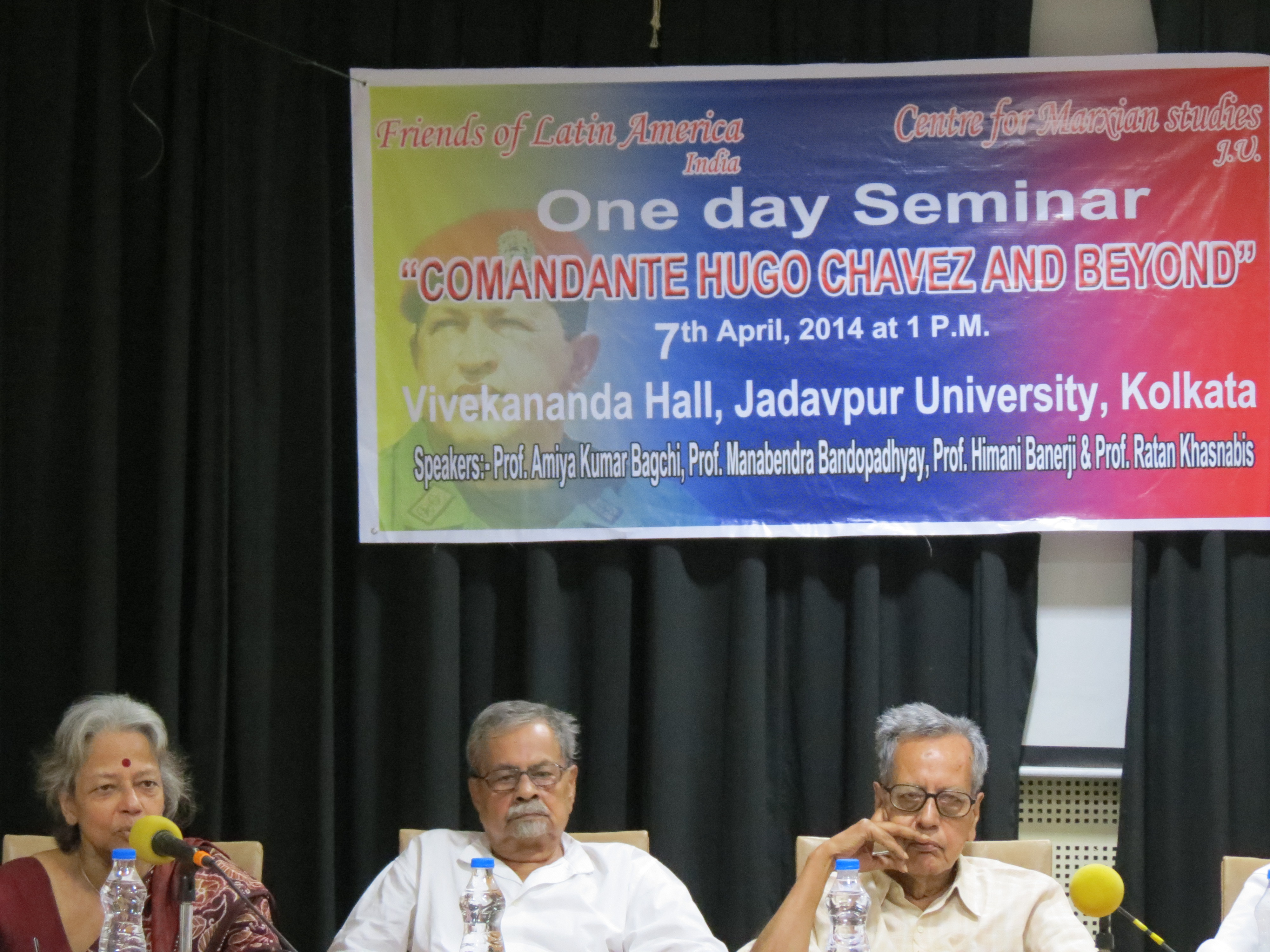
Chavez Remembered in Kolkata
ON April 7, the Friends of Latin America, India, organised a seminar, in collaboration with Centre of Marxian Studies, at Jadavpur University in Kolkata to commemorate the former Venezuelan president, Hugo Rafael Chavez Frias, the great Bolivarian socialist leader whose commitment to social justice and a better deal for the poorer classes had pitted him against the neo-liberal imperialist powers, on his first death anniversary. “Commandant Hugo Chavez and Beyond” was the topic of deliberations at the seminar.
After a preliminary introduction by the secretary of the organising committee, Suman Putatunda, the official communiqué received from Venezuelan Embassy as the message of solidarity was read. Then Professor Abdul Kafi expressed solidarity on behalf of CMS.
Professor Amiya K Bagchi, president of the organisation, chaired the seminar and started the discussion. Professor Bagchi dwelt on the overall Latin American scenario today as well as the historical perspective of the Bolivarian movement founded and led by Hugo Chavez. As an economist, he explained why and how the movement developed, what its network among the people was like, and how on being elected to power the standard bearers of the movement carried out far reaching reforms in favour of the poor and the unprivileged section of the population, laying adequate stress on health, education and employment. The resources of the state, so long not utilised for the benefit of the weaker sections of the population, began to be allocated substantially to raise the standard of living. Such public policy of the state substantially reduced poverty and prepared an overwhelming section of the population to act as active citizens of a democratic and progressive nation. Even in Venezuela, in the post-Chavez scenario, the US is trying to destroy his successor Maduro’s regime by all kinds of illegal and immoral activities and openly inciting opposition parties to create violence.
Professor Himani Bannerji discussed how the socio-political changes that led to women’s empowerment started with the victory of the Cuban revolution in 1959, led by Fidel Castro and Che Guevara, and gradually spread all over the continent and ultimately took shape with the formation of the Bolivarian Alliance of the People of Our America (ALBA) which is essentially a political, anti-neo-liberal, anti-imperialist and at the same time a pro-women movement. This project is based on the principle of cooperation, complementarity and solidarity, and seeks to rally the popular forces for a new declaration of Latin American independence --- a movement for the people’s integration, for life, justice, peace, sovereignty, identity, equality, for the liberation of Latin America, for an authentic emancipation that envisions socialism.
Professor Manabendra Bandopadhyay described the history of cultural resistance, first against the Spanish and then American imperialism and how the resistance was expressed in different styles and forms in literature, in music, in cinema etc.
Professor Ratan Khasnabis said after the Cuban leadership, Chavez was one who stood up against the US power in the backyard of the US and asserted the independence of South American nations whom the US always considered its lackeys.
The discussion was followed by a films show --- of The Revolution will not be Televised and Venezuela Bolivariana-Pueblo y Lucha de la IV Munidial. Then came a very animated question answer session in which a large section of the young audience asked incisive questions on the ALBA movement, when Professor Bagchi and Putatunda did their best to elucidate the issues involved.


